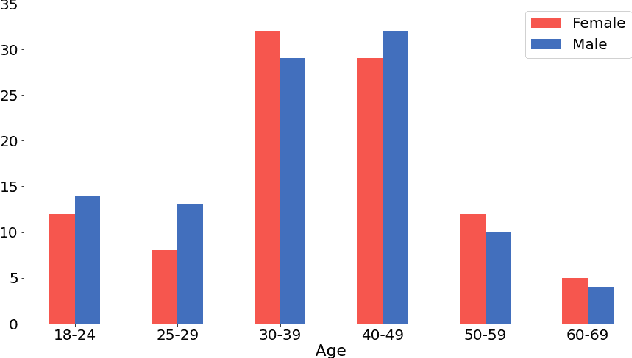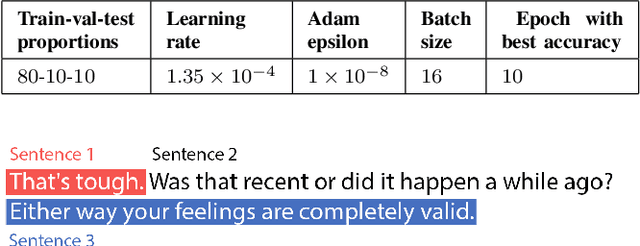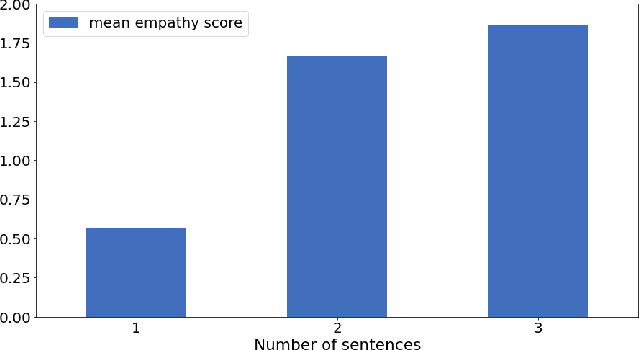Neophytos Polydorou
A Multilingual Virtual Guide for Self-Attachment Technique
Oct 25, 2023Abstract:In this work, we propose a computational framework that leverages existing out-of-language data to create a conversational agent for the delivery of Self-Attachment Technique (SAT) in Mandarin. Our framework does not require large-scale human translations, yet it achieves a comparable performance whilst also maintaining safety and reliability. We propose two different methods of augmenting available response data through empathetic rewriting. We evaluate our chatbot against a previous, English-only SAT chatbot through non-clinical human trials (N=42), each lasting five days, and quantitatively show that we are able to attain a comparable level of performance to the English SAT chatbot. We provide qualitative analysis on the limitations of our study and suggestions with the aim of guiding future improvements.
An Empathetic AI Coach for Self-Attachment Therapy
Sep 17, 2022



Abstract:In this work, we present a new dataset and a computational strategy for a digital coach that aims to guide users in practicing the protocols of self-attachment therapy. Our framework augments a rule-based conversational agent with a deep-learning classifier for identifying the underlying emotion in a user's text response, as well as a deep-learning assisted retrieval method for producing novel, fluent and empathetic utterances. We also craft a set of human-like personas that users can choose to interact with. Our goal is to achieve a high level of engagement during virtual therapy sessions. We evaluate the effectiveness of our framework in a non-clinical trial with N=16 participants, all of whom have had at least four interactions with the agent over the course of five days. We find that our platform is consistently rated higher for empathy, user engagement and usefulness than the simple rule-based framework. Finally, we provide guidelines to further improve the design and performance of the application, in accordance with the feedback received.
 Add to Chrome
Add to Chrome Add to Firefox
Add to Firefox Add to Edge
Add to Edge